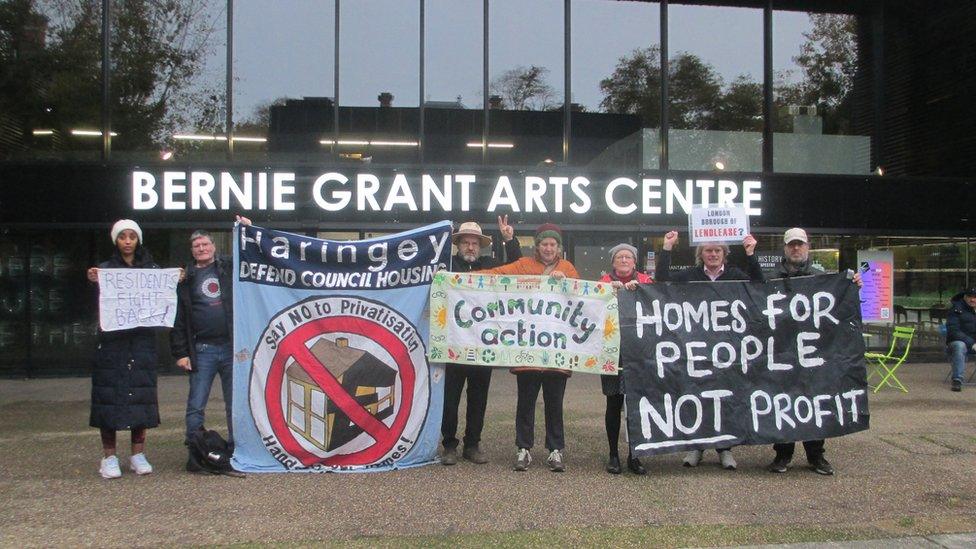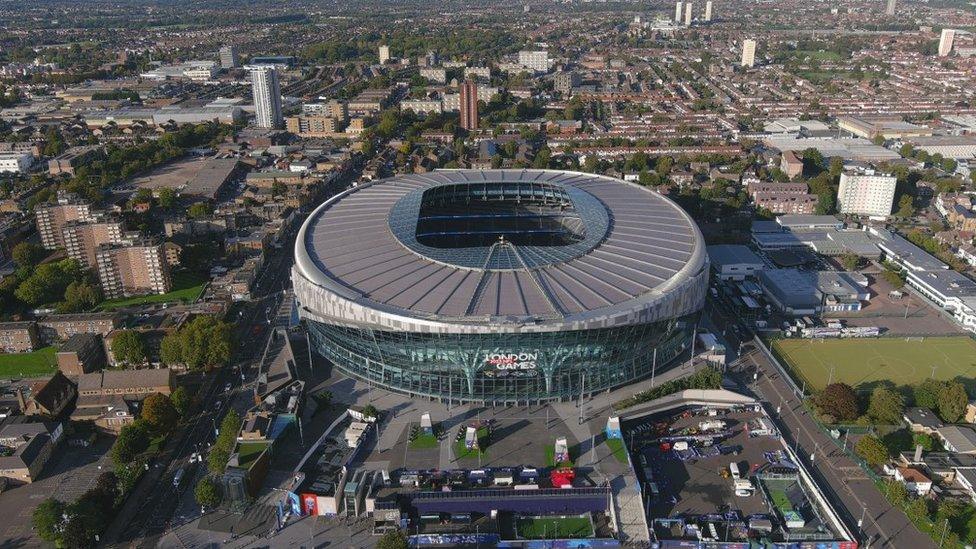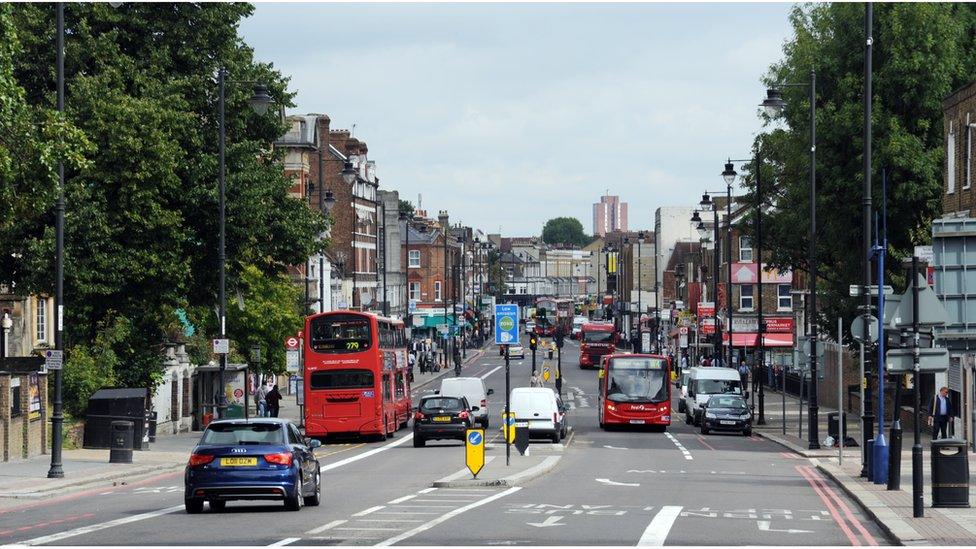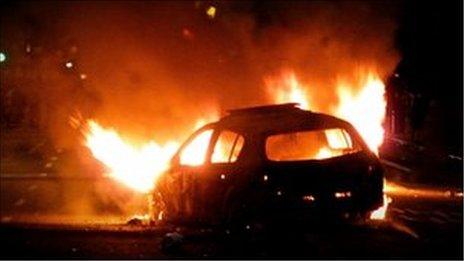Tottenham: Council accused of 'social cleansing' over development
- Published

Some residents protested the plans outside the inquiry hearing in Tottenham
Residents opposing Haringey Council's attempts to purchase their homes and businesses have told a public hearing it amounts to "social cleansing".
Last year the council granted planning permission for up to 3,000 homes and commercial development close to the Tottenham stadium in north London.
It claims the only way the project will be delivered on time is by using a compulsory purchase order (CPO) to buy properties earmarked for demolition.
But many say they object to the plans.
The authority claimed the proposals would provide a "significant contribution to the regeneration of the area" including thousands of jobs, improved travel links, and millions of pounds for the economy - along with a library and learning centre, office space, a public park and an energy centre.
However, it has attracted opposition from residents and business owners because dozens of homes and existing businesses would be demolished - such as those on the Love Lane housing estate and on the Peacock Industrial Estate.
'We are the wrong sort'
Mary Powell, a leaseholder who lives on the Love Lane estate, told the inquiry the proposals allow "social cleansing to take place".
Speaking at a public inquiry chaired by the council's planning inspector in Tottenham on Thursday, she argued: "We are the wrong sort of homeowners and do not belong in the new vision of High Road West."
Ms Powell said the estate was seen by outsiders in a "prejudiced" way, and claimed the council had led "a period of managed decline since 2012 if not earlier" with some maintenance and upgrades not carried out.

Alecos Tryfonas said accepting new premises in the area would mean "losing everything we have as a family"
She also said while relocation options seemed "superficially inviting", the costs and phasing of the development were "more likely to drive me and other resident leaseholders out of the area".
She explained she could afford a one-bedroom flat on the new scheme but it would be "much smaller" than her current home, and she did not want to consider an equity loan to secure a bigger home because she is "mortgage free" thanks to "hard work and frugal living".
'All we worked for'
Meanwhile Alecos Tryfonas, whose family owns several Tottenham High Road properties earmarked for demolition including takeaway Chick King and a flat occupied by his elderly parents, said the properties were "all we worked for and what we own as a family" and he would "never be able to replicate that anywhere".
The council said it is committed to working with businesses, but those relocating within High Road West would be offered leaseholds not freeholds.
Mr Tryfonas said accepting new premises would mean "losing everything we have as a family: our freeholds, the rest of the business, my mum's house, my sister's house".
He said he would not wish his experience on anyone.
"I was told one morning by the local authority that shops are going to go, my property is going to be demolished - and there has never been any consultation or option to retain the property," he added.
The public inquiry comes after Tottenham Hotspur FC also lost a High Court challenge over the plans, and the hearing was told a petition against the demolition of High Road shops had gained more than 4,500 signatures.
It is expected to continue hearing evidence until 22 November.

Listen to the best of BBC Radio London on Sounds and follow BBC London on Facebook, external, X, external and Instagram, external. Send your story ideas to hello.bbclondon@bbc.co.uk, external
Related topics
- Published18 October 2023

- Published2 October 2023

- Published1 August 2012
